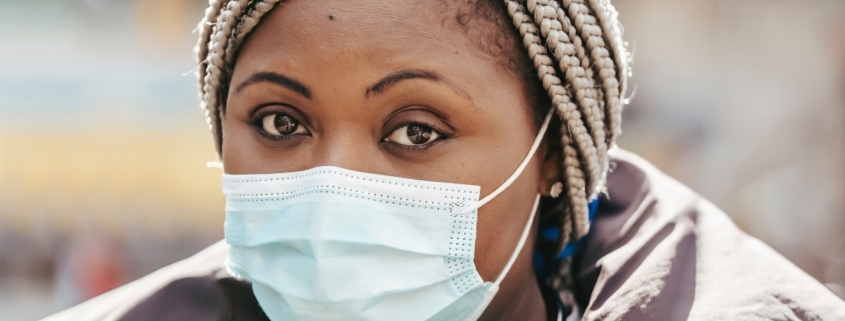Wear a Mask for 100 Days: How President Biden’s call to action can restore America’s faith in public health
Wearing a face mask during a pandemic seems like a no-brainer. Public health experts like Dr. Anthony Fauci have repeatedly endorsed the practice, along with handwashing and social distancing, as critical to curbing the spread of COVID-19. Moreover, with a new variant of the coronavirus entering the U.S., now is the time to take definitive action. And President Biden’s call for all Americans to wear a face mask for 100 days is just what the doctor ordered.
Yet there has been strong resistance over mandates to wear face masks with members of anti-mask groups claiming their person freedoms are being violated. According to one of their leaders, Ammon Bundy, who once organized armed standoffs against federal agents, “It’s not about, you know, the mandates or the mask. It’s about them not having that right to do it.”
This is really nothing new. The struggle between personal freedom and public health has been brewing for decades. Complaints about so-called Nanny-State laws, governmental protections that supposedly interfere with individual rights, actually began in the 2000s. Over the years they included mandates to wear motorcycle helmets, restrictions of smoking in restaurants and bans on sugary sodas, all of which have all been characterized as governmental overreach.
However, with the advent of the pandemic, the opposition had reached a higher level of intensity, generating a storm of controversy. Mask-wearing rules in retail environments have sparked many a meltdown, with videos going viral over the internet of individuals going ballistic, kicking and screaming, some having to be physically removed from the store.
Large public demonstrations have also become common, with anti-mask protestors getting into people’s faces, using the fact that they are not wearing a mask as an act of aggression. After one such protest in Los Angeles, the city council passed a mask-wearing law, with up to a $1,000 fine or six months in jail for those who don’t comply.
But the idea of compulsory mask-wearing, like state-mandated lockdowns and stay-at-home orders, has only served to further inflame the anti-mask groups. At one recent demonstration in Idaho, armed protestors swarmed health district offices — and some health officials’ homes — screaming and blaring air horns. In the face of such hostility and personal threats, many public health professionals have been forced to leave their jobs. Since April 1, some 181 have resigned, retired or been fired in 38 states. It’s the largest exodus of public health leaders in American history.
All this has significantly weakened America’s system of public health and severely handicapped efforts to combat the pandemic. Overwhelmed with COVID-19, many hospitals have cancelled elective procedures and some are now unable to accept any new patients. Eventually no services may be available at all, even for emergencies. In such dire circumstances, the cost of health care would be sure to skyrocket. That is, for anyone who can gain access.
Public health initiatives, along with their rules and regulations, are designed to prevent such worse-case scenarios from taking place. And they have been largely successful throughout the twentieth century, including vaccinations for polio, smallpox, and measles. Stricter driving under the influence and seat belt laws have reduced traffic fatalities. Public smoking restrictions are protecting vulnerable populations from being exposed to secondhand smoke.
While measures like these sometimes do infringe on personal freedoms, they are adopted because they serve the greater public good, which is something that government is legally obligated to do. In times of national emergency, such as with the COVID-19 pandemic, this could include temporarily closing businesses and quarantining individuals. Otherwise, we would have little chance of curbing the rates of infection and death, which have already reached unprecedented levels.
For this reason alone, mask-wearing laws could be legally passed and enforced. However, that is not how we like to do things in a democracy, nor is it what we need to do right now. What we need now is voluntary compliance. What we need now is the restoration of America’s faith in public health. President Biden’s call for masking up could be a step in that direction, but it must not be considered as a threat to personal freedom. Instead, it should be regarded as a patriotic duty, a contribution each person must make to avert a national disaster, something each American should be more than willing to do to support our democratic system of government.
Let’s remember that Joe Biden is not the first president to make such a call. President Kennedy, in his inaugural address 60 years ago, encouraged us to “Ask not what your country can do for you, ask what you can do for your country.” Right now, wearing a mask for the next 100 days is something all of us can do for our country.
Author:
Dan Skiles
Consultant, IPS
Dan Skiles is a consultant and former Executive Director at the Institute for Public Strategies, a Southern California-based nonprofit that works alongside communities to build power, challenge systems of inequity, protect health, and improve quality of life.



